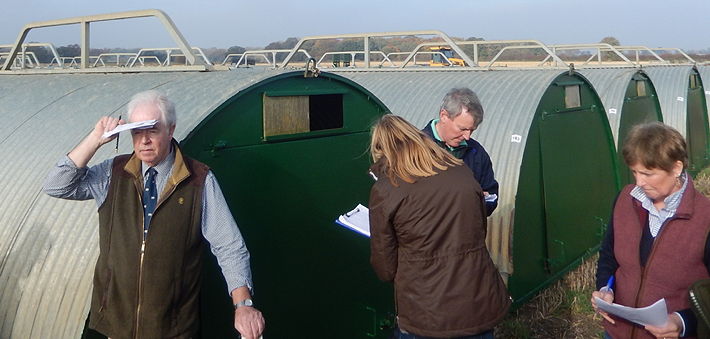Eu pig prices are resuming their upward track with the latest influential German producer price rising by 4 Cents to stand at 2.09 EUR, which is equivalent to 181p/kg in real money.
The SPP is also making upward progress rising by 1.13p and is within a gnat’s whisker of hitting the 200p mark, now standing at 199.53p. Unfortunately, these price increases have yet to filter through to the main UK weekly contribution players, whose prices remain between 190p/kg and 178p/kg, which is a country mile behind the SPP and unsustainable as far as most producers are concerned when compared with production costs of 220p/kg.
Despite the upcoming shortage of pigs in the supply chain, there are very few takers for additional spot pigs which remain hard to place and deals that have been done are generally in the 175p – 185p/kg region for one off loads, although regular sellers with lighter pigs could get in the 200p/kg region but are still well adrift of COP levels which remain high.
Cull Sows
Cull sow prices have often been a useful indicator of what is to come in Europe and it is good to see that cull values on this side of the Chanel have also increased to the tune of 4p/kg, with most now worth between 76p – 80p/kg.
The Euro which traded on Friday worth 86.8p has also helped to put up the value of sow exports from the UK as well as increasing the price of imported pig meat travelling in this direction.
Weaners
Little change in weaner prices which remain spread across a wide price range and although no AHDB 7kg values are available this week, most contract pigs in this category have been changing hands anywhere between £42 – £48/head. But with little interest from buyers, non-contract pigs remain hard to place even at rock bottom prices.
Feed Market Trends
Unfortunately, despite a record Russian week crop Comrade Putin now appears to be questioning the ongoing use of the Ukraine grain corridor and most of the signals in the grain and commodity markets are negative rather than positive as far as the pig industry is concerned.
This is underlined by the latest ex farm UK spot feed wheat weekly average which has gone up from £250.80/t a week ago to £255.90t.
Futures prices are also remaining bullish with October feed wheat traded at £269/t and September 2023 £260/t. Feed barley deals have been agreed for October delivery at £255/t and for September 2023 at £245/t.
Protein values are a touch easier but still far too expensive with Hipro soya quoted for October delivery at £473/t and for May – October 2023 at £454/t. Rapemeal values are quoted at £322/t for November – January 2023.
And finally, there are more reports underlining the upcoming pig shortage on the horizon following the latest figures recently released by DEFRA showing that the English pig breeding herd has shrunk within the last twelve months to the tune of almost 20% as financial pressures continue to drive producers out of pigs.
These figures show that the female breeding herd in England has lost more than 50,000 sows and gilts; with 28% fewer gilts and in pig sows and dry sows down by 18%.
But big losses are also being experienced in the slaughtering and processing sector with reports that Pilgrims UK have reduced production levels at their Ashton abattoir site and are closing their Suffolk and Leicestershire processing plants following losses of £16 million in 2021, with the loss of 700 staff.
Unfortunately, this comes at a time when much higher processing costs arising out of the energy crisis have also to be faced in the winter ahead which is not far away with several mountains to climb before then.




